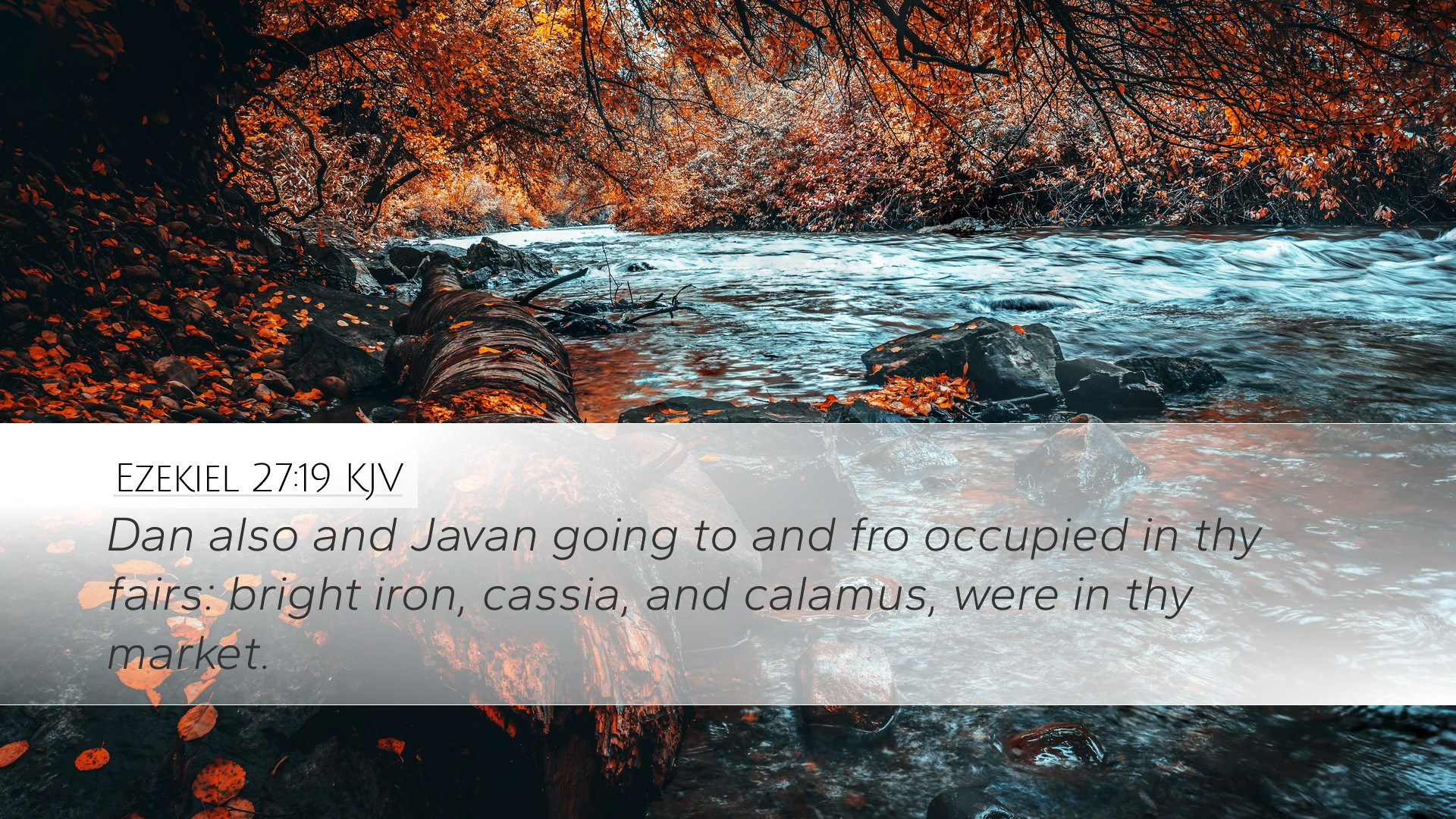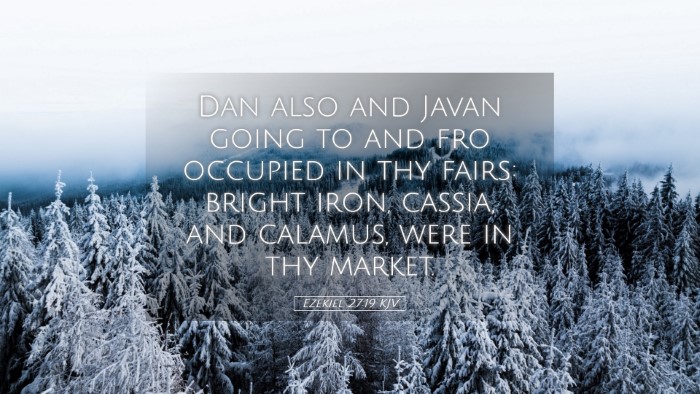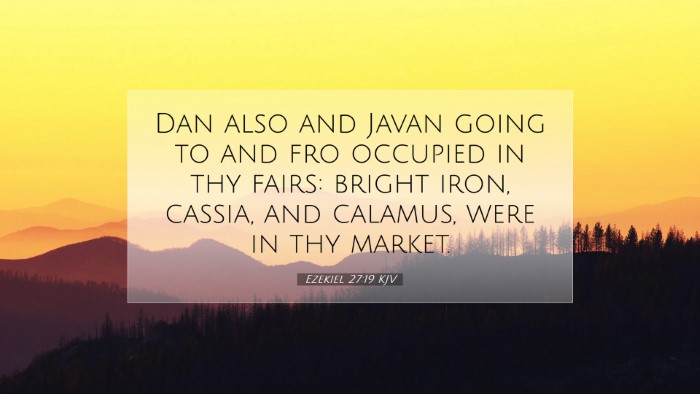Ezekiel 27:19 - Commentary
Verse Reference: Ezekiel 27:19 - "Dan also and Javan going to and fro occupied in thy fairs: bright iron, cassia, and calamus, were in thy market."
Overview
This verse is part of a larger passage in Ezekiel, which describes the lament of Tyre and the expansive trade network that it had established. The mention of Dan and Javan highlights the geographical scope of Tyre’s trading relationships and illustrates the various types of goods that were exchanged in its markets.
Insights from Commentaries
Matthew Henry’s Commentary
Matthew Henry emphasizes the significance of trade in the ancient world, particularly how it connected different nations and peoples. In Ezekiel 27, Tyre is depicted as a major trading hub, with merchants from various regions participating in commerce. The reference to Dan and Javan indicates not only the diversity of trade partners but also the importance of their products, such as metals and spices.
- Dan: Known for its location near the Mediterranean, the people of Dan were recognized for their naval craftsmanship.
- Javan: Commonly identified with Greece, emphasizing Tyre’s connection with Hellenistic trade and culture.
Henry notes that this extensive trade brought wealth and influence to Tyre, but also set the stage for its eventual downfall due to pride and corruption.
Albert Barnes’ Commentary
Albert Barnes offers a detailed analysis of the goods mentioned in the text. He points out that bright iron, cassia, and calamus were valuable commodities in the ancient world, utilized for a variety of purposes:
- Bright Iron: A key material for weapons and tools, representing strength and military power.
- Cassia: Aromatic spice associated with perfume-making and ritualistic use, indicative of luxury.
- Calamus: Often used in incense, highlighting the significance of ritual and religious practices.
Barnes contends that the diverse range of goods points to Tyre’s economic prosperity, which was ultimately transient. The verse serves as a reminder that wealth gained through unethical means or excessive pride can lead to divine judgment.
Adam Clarke’s Commentary
Adam Clarke takes an exegetical approach, analyzing the original Hebrew text to explore deeper meanings. He notes the significance of the words and suggests that each item listed is reflective of the characteristics of Tyre:
- Occupational Relevance: The mention of “going to and fro” indicates not only trade but the active pursuit of commerce, which was a hallmark of Tyrian merchants.
- Symbolism of Bright Iron: It symbolizes not just physical strength but also represents the power and influence of Tyre in the ancient Near East.
Clarke highlights that Tyre’s fall in prophetic literature serves as a cautionary tale regarding dependence on commerce as a source of security rather than on God.
Theological Reflections
This verse, while primarily historical, carries profound theological truths relevant to contemporary audiences. The prosperity of Tyre invites reflection on the ethical dimensions of trade, the allure of wealth, and the social responsibilities that accompany economic power.
1. Economic Interaction and Responsibility
The engagement of Dan and Javan in trade showcases how interconnected communities can be through commerce. However, it raises questions about ethical trading practices, fairness, and the impacts of economic disparity among nations.
2. The Danger of Pride and Wealth
The wealth amassed by Tyre became a snare; as indicated by various commentators, the city’s pride ultimately led to its downfall. This mirrors New Testament teachings regarding the dangers of wealth and the need for humility.
3. Divine Sovereignty
Throughout the passage, one sees divine sovereignty at play. While Tyre may have thrived economically, God’s plan supersedes earthly success, serving as a reminder that nations and individuals cannot rely solely on material wealth but must recognize a higher authority.
Conclusion
In Ezekiel 27:19, we find a microcosm of the broader themes present throughout the book of Ezekiel. The interconnections of trade, the responsibilities associated with wealth, and underlying ethical implications are as relevant today as they were during the time of Tyre. The historical context of Tyre’s rise and fall serves as an enduring reminder to remain vigilant and grounded in God’s truth amid the ebb and flow of commerce and societal influence.


